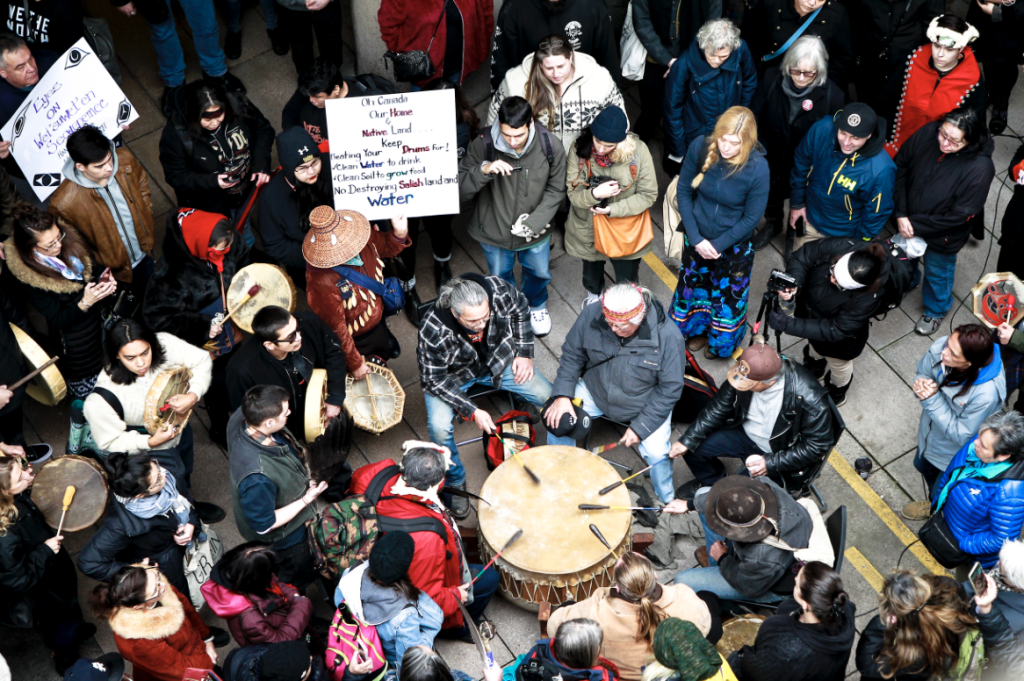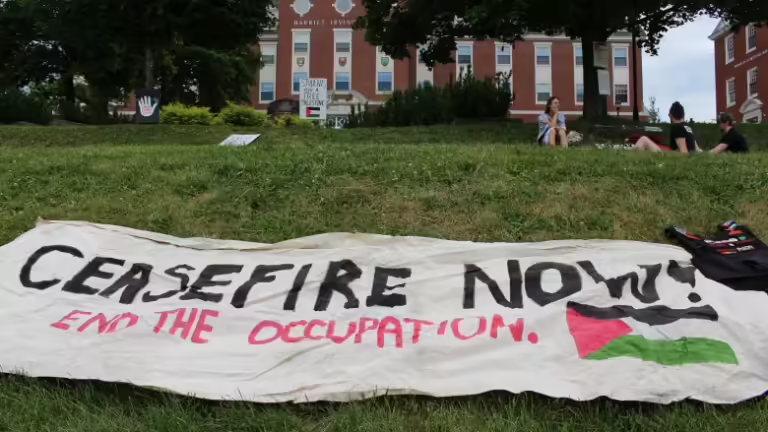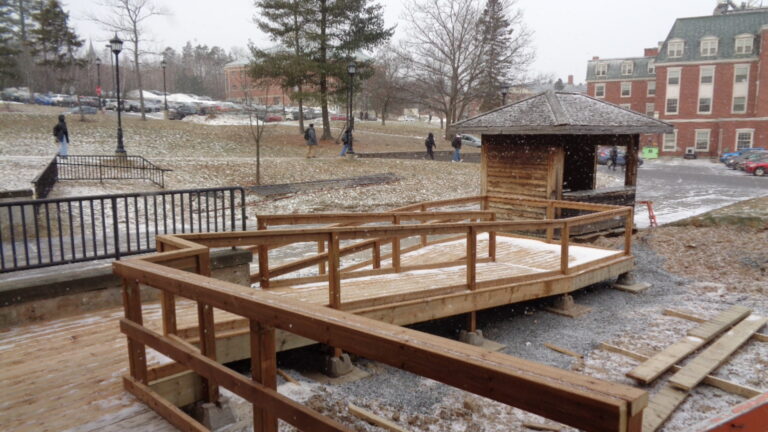Community members gathered for a prayer vigil on the University of New Brunswick campus on Friday after the RCMP arrested protesters in northern B.C. for barring pipeline companies from accessing the traditional land of Wet’suwet’en First Nation.
Around twenty people, including UNB’s assistant vice-president Indigenous engagement Amanda Rogers, gathered for two hours in a reading room at the Harriet Irving Library to discuss the situation, pray and partake in ceremonial practices.
Following three days of talks, the Wet’suwet’en hereditary chiefs reached an agreement yesterday with the RCMP around a temporary injunction. Wet’suwet’en members had set up checkpoints on a bridge and a remote stretch of road preventing construction workers from accessing their traditional territory, which is located about 300 kilometres west of Prince George, B.C.
Police entered one checkpoint and arrested 14 people on Monday, enforcing a court injunction issued last month which ordered people to stop blocking the area.
TransCanada Corp., the company running the pipeline project, has said it signed agreements with all First Nations along the proposed route. But the hereditary leaders say those agreements don’t apply to the traditional territories.
Participants of the UNB vigil discussed taking a stand and creating an example, not through hatred or violence, but through peace.

“What’s happening in BC has raised a lot of important questions concerning the nature of Indigenous leadership,” said Chris George, an indigenous doctorate student at UNB.
“I think it’s important to start with prayer. To start with healing,” George told the group as the gathering began.
The prayer vigil included practices such as burning tobacco, holding herbs while praying, touching water and drumming. The event ended with a peaceful hug train, to conclude on a optimistic note.
Participants discussed how the pipeline demonstration strikes home for many members of New Brunswick First Nation communities, as it bears a strong resemblance to many land disputes that have happened over the years.
While not all attendees of the vigil expressed feelings of disdain and disappointment towards the Canadian government, many did give voice to their anger.
Rogers said her views expressed at the event are her own and do not reflect the position of UNB.
“We’re seeing a violation of treaty rights, and it’s not acceptable,” vice-president Rogers told the group.




